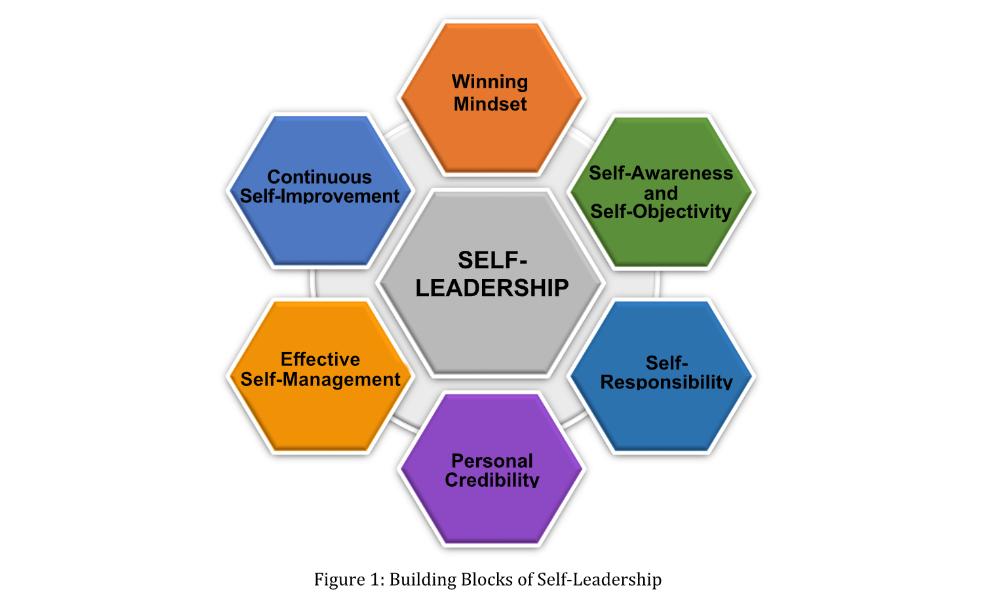Not many of us realise that to truly optimise our potential, transform our dreams into reality, lead others effectively and excel in the workplace, one must first learn how to lead oneself productively. Indeed, William Penn reminds us that “No man is fit to command another that cannot command himself.”
Examples of poor self-leadership abound. Take for example, a former CEO in the Malaysian banking industry who only listens to positive feedback. He automatically becomes defensive to constructive criticism and goes to great lengths to dispute the veracity of it. Not surprisingly, he was finally booted out of the organisation.
Another example is the “toxic” and arrogant attitude of an ex-president (“abrasive personality”) of a local university who was intimidating and insensitive to others. Within five years of his autocratic leadership, about 50 percent of his immediate employees “fired” him by resigning.
An excellent example of a renowned leader with a high sense of self-leadership is the late Ismail Mohamed Ali, the first Bank Negara Malaysia governor. He personified integrity in his professional and personal life; demonstrated high standards of self-discipline and work; and was willing to admit his mistakes.
Charles C Manz and Henry P Sims, Jr define self-leadership as “the influence we exert on ourselves to achieve the self-motivation and self-direction we need to perform.” According to Jim Cathcart, self-leadership is “the ability to get yourself to do what needs to be done, when it needs to be done, whether you feel like it or not, and still do it well.”
To my mind, self-leadership is essentially the process of empowering oneself from within to consistently attain impressive results or to perform at the top of one’s ability in various arenas, including the workplace. Simply put, self-leadership is being in control of one’s thoughts, feelings and behaviour to perform well or to attain the desired results.
Six building blocks of self-leadership
As depicted in Figure 1 below, the six building blocks of self-leadership are a winning mindset, self-awareness and self-objectivity, self-responsibility, personal credibility, effective self-management, and continuous self-improvement.
The first and most critical building block of self-leadership is a winning mindset which helps to awaken the giant within you. A “mindset” is generally defined as the established set of attitudes or basic beliefs that somebody has and that are often difficult to change.
A winning mindset encompasses having a positive self-image (mental picture of oneself), high self-esteem (self-confidence and self-acceptance), accurate or rational thinking, resilience (ability to bounce back quickly from setbacks and adapt when things go awry) and a growth mindset (one’s intelligence and talents can be developed).
We can profoundly change almost every aspect of our lives by changing our mindset. In the words of Anthony Robbins, “All personal breakthroughs begin with a change in beliefs.” Our beliefs are of utmost importance as they shape our feelings and actions which ultimately determine the limits of individual accomplishment.

The second crucial building block of self-leadership is gaining self-awareness and self-objectivity (accurate self-assessment). As defined by Robert Cooper, self-awareness is “knowing your motivations, preferences, and personality and understanding how these factors influence your judgement, decisions, and interactions with other people.”
Self-objectivity encompasses having an accurate or realistic view of oneself based upon facts or honest feedback from others. It involves focusing one’s mind on seeking the truth and being amenable to new knowledge.
Self-awareness and self-objectivity are crucial to one’s productive personal and interpersonal functioning. Indeed, all lasting change begins with self-insight. To change oneself, one first needs to know who one really is (one’s thoughts, feelings, values, habits and personality) and what level of capability one currently possesses. For example, to what extent is one’s current beliefs shaped by the judgements made by significant others.
Self-awareness and self-objectivity enable one to break free from the chain of erroneous
beliefs through “enlightenment”; leverage one’s strengths and mitigate weaknesses; control emotions effectively; work productively with others; establish appropriate life and career goals; and to make decisions judiciously.
The third building block of self-leadership is self-responsibility or taking charge of one’s life. Self-responsibility involves taking the initiative to make things happen and basing actions on self-chosen values (internal moral compass), not feelings or circumstances.
To take charge of one’s life, one should develop a personal mission statement (including core values), establish verifiable goals, formulate action plans to attain the predetermined goals, take action to transform the goals into reality, and monitor progress towards attainment of one’s goals.
The fourth building block of self-leadership is personal credibility which is crucial for building trust and demonstrating reliability. Personal credibility is the sum of integrity and competence. “Integrity”, as defined by Warren Bennis and Burt Nanus, is “a correspondence between word and deed.”
The major elements of integrity are speaking the truth, practising what one preaches, honouring promises and commitments, not deceiving or manipulating others for personal gain; and taking responsibility for one’s actions and decisions.
“Competence” (proficiency in completing tasks) is having the required knowledge, skills and relevant experience to excel in one’s job, career or industry.
The fifth building block of self-leadership is self-management - managing oneself successfully to attain goals within deadlines. The three major dimensions of successful self-management are emotional self-control, successful time management and self-discipline.
The sixth and final building block of self-leadership is continuous self-improvement. In this regard, one has to be a lifelong learner who is amenable to feedback and constructive criticism, networks with like-minded people to enhance required expertise, and practises self-reflection and self-correction.
Importance of self-leadership
Self-leadership is crucial for excelling in both our personal and work lives. In the words of Peter F Drucker, “Success in the knowledge economy comes to those who know themselves - their strengths, their values, and how they best perform.”
At the individual level, self-leadership empowers individuals to optimise their potential and attain the desired results by providing them with an inner drive (intrinsic motivation), a sense of purpose, increased self-responsibility, effective self-management, and a moral compass for making daily decisions.
In today’s high-performance, collaborative and decentralised workplace with reduced supervision, a self-led workforce (self-reliant, proactive, resilient and accountable) is crucial to enhance organisational productivity, employee engagement, and organisational commitment.

A recent study conducted by The Ken Blanchard Companies involving 1,300 people in managerial and non-managerial roles found that those who exhibit the behaviours of a self-leader are more likely to expend discretionary effort on behalf of their organisations, perform at high levels, and have positive feelings about their jobs.
Additionally, self-leadership also allows individuals to manage their emotions productively which helps to build good relationships and to work effectively in teams.
Furthermore, to lead others successfully, one must first learn how to lead the one in the mirror. Indeed, according to Daniel Goleman, a leading expert on emotional intelligence, “Exceptional leaders distinguish themselves because of superior self-leadership.”
Finally, self-leadership facilitates organisational change; organisational transformation can only take place where there is individual transformation. In the words of J Stewart Black and Hal Gregersen, “An organisation changes only as far as its collective individuals change.”
In this regard, organisations need people who are self-confident, inner-driven, proactive, self-reliant, take ownership of what they do, resilient and lifelong learners - those who lead themselves from the inside out to excel.
In a nutshell, self-leadership is crucial for both personal and organisational excellence. - Mkini
RANJIT SINGH MALHI is a widely-quoted authority on self-leadership, peak performance and soft skills. He has written six books on personal excellence, soft skills and management, three of which have been translated into Arabic.
The views expressed here are those of the author/contributor and do not necessarily represent the views of MMKtT.



No comments:
Post a Comment
Note: Only a member of this blog may post a comment.